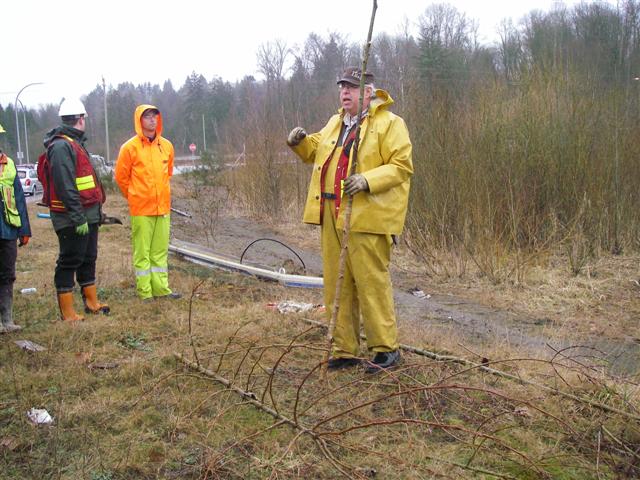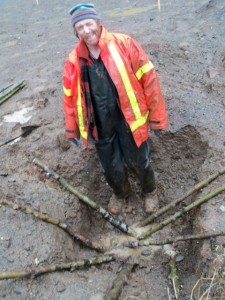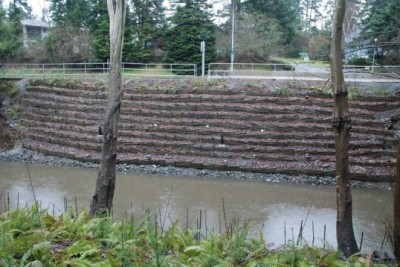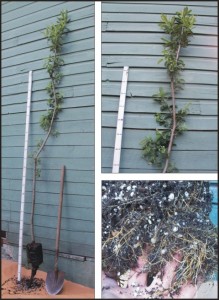Natural Processes for Restoration of Drastically Disturbed Sites course
- Start Date: May 13, 2014
- End Date: May 13, 2014
- Time: 8:00am - 5:00pm
- City: Nelson, BC
- Venue: Prestige Lakeside Resort
- Instructor: David Polster & Thor Smestad
Course description
Natural processes have been “reclaiming” natural disturbances since the beginnings of time. This one day workshop will explore how these natural processes can be applied to the reclamation of roads, borrow pits and other sites that humans have disturbed. It is clear that traditional reclamation programs are failing to generate the ecological goods and services that were lost during the disturbance of the site. Providing erosion control is a key element in the development of effective restoration programs. We will look at the processes of erosion and how natural systems solve erosion problems. Similarly, many disturbed sites lack nutrients for plant growth or the capacity to cycle the nutrients that are available. We will explore the natural processes that provide nutrients and nutrient cycling capacity to ecosystems and how these can be re-established on disturbed sites. In many cases the systems and processes that naturally reclaim disturbed sites can be established on anthropogenic disturbances easily and at a lower cost than using traditional reclamation techniques.
This one day course precedes our spring conference which also takes place in Nelson: Resource Roads in British Columbia: Environmental Challenges at a landscape level.
Our instructors
The course will be led by David Polster with assistance from Thor Smestad.

Mr. Polster has been involved in the reclamation of severely disturbed sites for over 35 years. He was president of the Canadian Land Reclamation Association (3 terms) and is on the board of the Society for Ecological Restoration (BC Chapter and International board). He was recently awarded the John Rieger Award for his work with SER and in restoration. He is the alternate mining representative on the board of the BC Invasive Species Council. Dave is well known for his work in the use of soil bioengineering treatments to solve difficult reclamation problems. He recently instructed a post-graduate certification program in designing for natural processes at the University of Victoria. Dave can be reached at d.polster@telus.net. In this photo David describes the collection and use of cuttings for soil bioengineering treatments.
 Thor Smestad (M.Sc., P.Ag.) is a specialist in the area of ecosystem restoration, particularly in relation to streambank, lakeshore and slope stabilization, and as well invasive weed management. Much of his past work has involved the use of soil & water bioengineering and bio-technical slope stabilization techniques. In 2012 Thor started Treebear Native Plants and Ecological Services in Nelson, BC. Drawing also on his earlier years of silvicultural forestry experience, Thor operates this ecosystem restoration company predominantly in the west Kootenays. Here he focuses on the use live cuttings, planted in rooted or unrooted form, to restore degraded lands. Thor can be reached at bthors@telus.net Thor will introduce students to the Tall Rooted Spike Cuttings he produces at Treebear Native Plants and show some of the shoreline work done near the Prestige Hotel in Nelson.
Thor Smestad (M.Sc., P.Ag.) is a specialist in the area of ecosystem restoration, particularly in relation to streambank, lakeshore and slope stabilization, and as well invasive weed management. Much of his past work has involved the use of soil & water bioengineering and bio-technical slope stabilization techniques. In 2012 Thor started Treebear Native Plants and Ecological Services in Nelson, BC. Drawing also on his earlier years of silvicultural forestry experience, Thor operates this ecosystem restoration company predominantly in the west Kootenays. Here he focuses on the use live cuttings, planted in rooted or unrooted form, to restore degraded lands. Thor can be reached at bthors@telus.net Thor will introduce students to the Tall Rooted Spike Cuttings he produces at Treebear Native Plants and show some of the shoreline work done near the Prestige Hotel in Nelson.
Course outline
- Introduction
- Traditional treatments and issues
- Introduction to ecological recovery processes
- Succession as a model for restoration
- Erosion processes and solutions
- Other filters (constraints) and solutions
- Restoration of difficult sites (e.g. soil bioengineering treatments)
- Implementation, monitoring and questions,
- We will tour a local restoration site after the classroom portion of the course.



